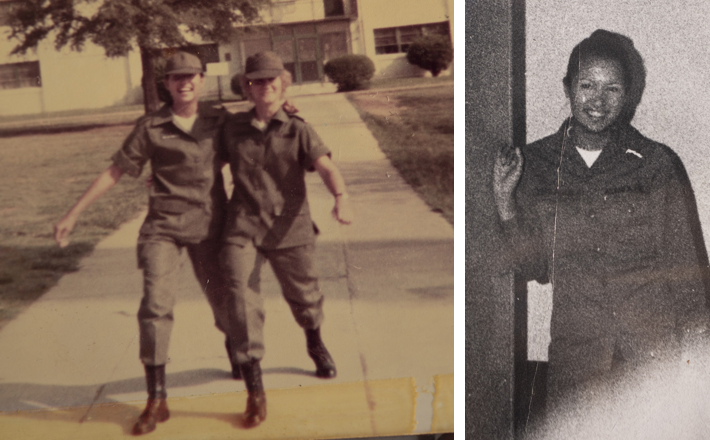Fresh out of Army basic training and thousands of miles from home in Germany, 19-year-old Rita Maldonado was trapped in a nightmare. She was sexually assaulted by her superior officer within a week of arriving at her first duty station.
When she reported the assault to her unit, she was met with disparagement and ridicule. “My attacker said I was a lying malingerer and that I should get an Article 15 [a non-judicial punishment]. His superior officer accepted his account of the incident and dismissed me from his office.”
Maldonado succeeded in getting a change of duty assignment and finished her four-year enlistment. But starting after her discharge in 1981, she experienced panic attacks, severe depression, and insomnia, which drove her to abuse drugs and alcohol. “I was broken, but somehow couldn’t figure out why,” said Maldonado. She was unable to work, and the drugs and alcohol only mitigated symptoms of post-traumatic stress disorder (PTSD) — they didn’t make it go away.
After more than two decades of suffering, she finally went to a psychologist, who diagnosed her with PTSD and major depressive disorder related to the in-service sexual assault. Maldonado, now in her mid-40s, applied for VA disability benefits for PTSD in 2009. The VA denied the claim because it didn’t believe that the sexual assault had occurred. Maldonado appealed, adding detailed descriptions of the in-service stressor. After a VA medical examination, the VA reviewed the case again in 2014. This time the VA conceded that the sexual assault had occurred, but denied the PTSD claim based on the VA examiner’s opinion that Maldonado had a borderline personality disorder that was unrelated to the in-service trauma.
It’s a marathon—it’s not a sprint. The long process can be extremely draining for a veteran.
Within months of Maldonado’s 2014 denial, NVLSP initiated a signature project piloted through its pro bono program — Lawyers Serving Warriors®— to assist survivors of military sexual trauma (MST), like Maldonado. Maldonado asked NVLSP to take her case. NVLSP placed her case with Lily North, an attorney with law firm Dechert LLP. NVLSP worked with North to secure the services of two mental health specialists. The two put Maldonado through an intensive, comprehensive psychological evaluation, interviewed three of Maldonado’s siblings and her current therapist, and reviewed her extensive military and prior mental health records. They then authored a 13-page, single-spaced, psychological evaluation report that, contrary to the 2014 VA examiner’s opinion, concluded that Maldonado suffered from PTSD and major depressive disorder due to the in-service sexual assault.
North then perfected Maldonado’s appeal to the Board of Veterans’ Appeals by filing a detailed brief along with the psychological evaluation report. She argued that the overwhelming weight of the medical evidence demonstrated that the claim should be granted. In 2016, however, the Board disagreed. The Board sent the case back for another VA medical examination.

The new VA medical examiner sided with the report and Maldonado’s other private psychologists, and eight years after the claim was filed, the VA finally awarded service connection for PTSD with major depressive disorder, and she was rated 70 percent disabled. She received disability payments from the date of her initial claim filing in 2009, which amounted to a sizable award.

But North didn’t stop there. She appealed Maldonado’s disability rating and filed a supplemental brief. Maldonado’s award was upgraded to a 100 percent disability rating in January 2018 — confirming her inability to maintain employment, and netting additional disability benefits to help Maldonado.
“Perseverance is a lot of the battle,” said North. “For veterans like Maldonado, it’s a marathon — it’s not a sprint. The long process can be extremely draining for a veteran.”
“It has taken 37 years, but I’m finally able to leave behind the betrayal I felt from the military, my unit and the VA.”
“It’s a long road to restitution,” said Maldonado. “It has taken 37 years, but I’m finally able to leave behind the military betrayal I felt from the sexual assault, the way I was treated by my unit after the assault, and by the VA when I first filed my claim and was denied.”
For this veteran, the fight is finally over.

